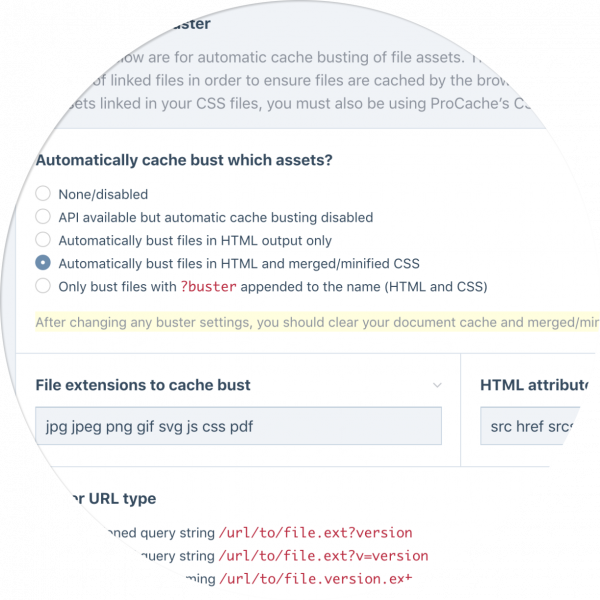The 204th issue of ProcessWire Weekly brings in all the latest news from the ProcessWire community. Modules, core updates, sites, and more. Read on!
Welcome to the 204th issue of ProcessWire Weekly! This time we're going to introduce two recently released third party modules, take a look at the latest core updates from Ryan, and also highlight a really great looking new site of the week developed for an award-winning global recruitment agency called Empiric.
As always, a big thank you to all of you for being here with us, and please don't hesitate to drop us a note if there's anything in your mind that you'd like to share. Your feedback helps us focus on the things that you folks want to hear more about.
Latest core updates: ProcessWire 3.0.98
Ryan's latest post at the processwire.com blog focuses on two things this week: our new master version, 3.0.98, and a brand new feature that's soon going to be available for the users of the commercial ProCache module.
3.0.98 is our latest master release
ProcessWire 3.0.98 is our latest stable or master release, and it's already available via the ProcessWire master branch at GitHub. Compared to our previous master release, 3.0.96, this is essentially a minor bug fix release.
Although there are no new features or big improvements here, it's still a recommended update for anyone running 3.0.96. For a full list of what's changed since our last master version, check out the GitHub commit log for ProcessWire 3.0.98.
Introducing Buster for ProCache
 In his post Ryan also walks us through a brand new feature added to the ProCache module. Known simply as Buster, this new feature is a configurable tool for browser cache busting the static files served by your site: images, documents, linked CSS and JavaScript files, and so on.
In his post Ryan also walks us through a brand new feature added to the ProCache module. Known simply as Buster, this new feature is a configurable tool for browser cache busting the static files served by your site: images, documents, linked CSS and JavaScript files, and so on.
Buster has two modes of operation: you can use it via the API by calling $buster->url() manually, but it can also run independently on the background, automatically handling entire browser cache busting process. When enabled, Buster sniffs out file modification dates, converts them to short codes, and adds those to filenames – either as a GET param or as a part of the filename itself.
It's probably worth mentioning that Buster does not apply to CSS and JavaScript files minified and merged by ProCache – mainly because those have always been "cache-aware". Instead, this new feature helps with files that have not been going through ProCache so far, and thus it's a whole new thing.
We'll leave a more in-depth Buster introduction to Ryan, so be sure to check his latest post at the processwire.com blog for more details regarding the Buster feature for the commercial ProCache module. Thanks!
New module: ImageOptim
This week we have two new third party modules to introduce, and the first one is called ImageOptim. This module, created by Philipp Daun, is essentially a wrapper for the web service ImageOptim – a commercial third party API platform that processes your images and returns optimized versions.
There are two ways to use this module: automatically, in which case original images are left as-is and only the size variations generated from them are optimized – or via the API, by using the optimize() method added by the module to Pageimage objects:
// Basic usage on a resized image:
echo $image->size(800, 600)->optimize()->url;
// Set quality to low and enable hi-dpi mode:
echo $image->optimize(['quality' => 'low', 'dpr' => 2])->url;Note that the ImageOptim web service is a commercial third party platform. While they do have a free trial available, this means that you will eventually have to pay to use this module. Please refer to the ImageOptim API pricing page for more details.
Big thanks to Philipp Daun for his work on this really useful module. ImageOptim is a nice addition to our collective toolboxes, and will no doubt be useful for a number of projects out there!
New module: Optimize External Links
Another new module this week is small Textformatter module called Optimize External Links. Created by PWaddict and based on an earlier module called Mark External Links, this module is a tool for automatically making a couple of SEO and usability improving tweaks to your content:
- External links automatically get class="external" and rel="nofollow" attributes
The class attribute allows you to easily style such links, providing a clear indicator for outbound links, while the rel attribute is considered a SEO best practice. - Optionally add rel="noopener", rel="noreferrer", and target="_blank" attributes to external links as well
When combined with target="_blank", the rel="noopener" attribute provides some protection against malicious sites, while rel="noreferrer" allows you to hide your site from external tracking scripts and such.
By combining aforementioned features this module provides various benefits – one of which is allowing content editors to focus on the content without having to constantly keep things like security or usability of outbound links in mind.
Big thanks to PWaddict for this module. Keep up the great work!
Site of the week: Empiric
 Our latest site of the week belongs to an award-winning recruitment agency Empiric. Founded back in 2005, Empiric is a global company with offices across UK, US, and Europe. They provide recruitment services across all industries, specializing in data, digital, cloud, and security.
Our latest site of the week belongs to an award-winning recruitment agency Empiric. Founded back in 2005, Empiric is a global company with offices across UK, US, and Europe. They provide recruitment services across all industries, specializing in data, digital, cloud, and security.
The website of Empiric, created by London based web agency Internet Dreams Studio, boasts a really beautiful, responsive design, and both looks and works nicely on all types and sizes of devices. The front-end of this site is based on the Bootstrap framework accompanied by a number of JavaScript tools and libraries – such as Fancybox, Awesomplete, and Chosen, just to mention a few.
Some behind the scenes highlights include a cleanly integrated login and registration feature, HTTPS protection for all site areas, and an integration with the SalesForce API – of which we only know because it's mentioned in the showcase at the Internet Dreams Studios' website, just to be clear.
If you'd like to hear more about this site built by Internet Dreams Studio for Empiric the recruitment agency, be sure to check out the showcase at the Internet Dreams Studios website. Our congratulations to both Empiric and Internet Dreams Studio – what you've got there is a really brilliant website, no doubt about that!
Stay tuned for our next issue
That's it for the 204th issue of ProcessWire Weekly. We'll be back with more news, updates, and content Saturday, 14th of April. As always, ProcessWire newsletter subscribers will get our updates a few days later.
Thanks for staying with us, once again. Hope you've had a great and productive week, and don't forget to check out the ProcessWire forums for more interesting topics. Until next week, happy hacking with ProcessWire!
Post a comment